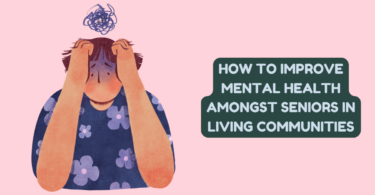
Mental Health
Mental health issues can have serious impacts on a person’s overall health, and many mental health disorders are only now being recognized. With this in mind, seeking therapy can help effectively treat many mental health issues.
Four of the most common forms of therapy are: psychodynamic, cognitive behavioral, behavioral, and humanistic. Exploring these four types of therapy can help anybody discover which type may be most beneficial for their specific situation.
Psychodynamic Therapy
The first form of therapy on this list is psychodynamic therapy. For those unfamiliar, psychodynamic therapy is one of the oldest and most well-known forms of therapy today. The primary strategy used centers around helping patients gain insights into their lives and day-to-day problems.
In general, the crutches of this form of therapy revolve around self-examination and self-reflection. This strategy places an emphasis on rooting out the source of emotional suffering with the help of a therapist, who serves as a window into oneself.
By evaluating early life experiences, inner thoughts, beliefs, and emotions, anybody can learn to identify stressors or defense mechanisms. Through this strategy, and by identifying these stressors, a person can practice therapeutic strategies the minute they notice these signs. In essence, this form of therapy is all about preventative action.
The best part of this form of therapy is the ability for it to be done remotely, especially in today’s day and age post-pandemic. Did you know that 21% of people polled in a study indicated that work from home has harmed their wellbeing? Even now, psychodynamic talk therapy can have a powerful impact on improving a person’s mental health.
Cognitive Behavioral Therapy
Cognitive Behavioral Therapy (CBT) is a similar form of therapy to that just discussed, with slight differences in the approach it takes. Known to treat mental health issues such as depression, anxiety disorders, alcohol and drug use, eating disorders, and more, CBT places an emphasis on transforming negative thoughts.
This type of therapy is based on a few main lines of thought:
- Psychological problems are based, in part, on faulty or unhelpful ways of thinking.
- Psychological problems are based, in part, on learned patterns of unhelpful behavior.
- People suffering from psychological problems can learn better ways of coping with them, thereby relieving their symptoms and becoming more effective in their lives.
While the idea is still on changing behavior before it occurs, the approach differs. CBT essentially teaches a person to be their own therapist by teaching how to pivot negative thoughts in a more positive direction.
These newly developed coping skills will help anybody learn how to tackle behavioral and emotional stressors that would normally contribute to certain mental health issues. By using this form of therapy, a person focuses more on what is happening currently in their life rather than focusing on what has led them to their current point.
This emphasis on living in the present helps prevent dwelling on certain negative feelings or situations in the past that led a person to where they are.
Behavioral Therapy
While behavioral therapy is an umbrella term for many types of therapy, cognitive behavioral therapy included, it is an effective umbrella. The primary belief in regard to this form of therapy is that all behaviors are learned over time and, by identifying catalysts for bad behaviors, negative behaviors can be changed.
Depression, anxiety, panic disorders, and anger issues have all been known to be treated effectively with behavioral therapy. An example of a strategy used during behavioral therapy is system desensitization. This strategy involves proposal invoking a fear response in growing increments until a person is able to successfully confront a thing that causes them fear.
In essence, behavioral therapy focuses more on behaviors themselves rather than the specific causes behind them. While certain forms of behavioral therapy (such as CBT) will focus on the underlying causes of behaviors, broad behavioral therapy focuses on adjusting the behavior itself.
Humanistic Therapy
The final form of therapy on this list is arguably one of the most controversial despite many studies advocating for its effectiveness. Humanistic therapy focuses more on a holistic approach to therapy, which is done by developing a deeper understanding of the world around you.
Positive affirmations are one of the biggest tools used in humanistic therapy, as the biggest line of thinking among those who practice this form of therapy is that thoughts have a huge impact on actions. As with CBT, humanistic therapy focuses on day-to-day life rather than the previous actions that led to a certain point.
Above all, humanistic therapy is a form of talk therapy that focuses on outlining thoughts a person has regarding certain situations. Evidence has shown that trauma, relationship difficulties, psychosis, depression, and other forms of mental illness can all be treated with this form of therapy.
Using Therapy to Treat Mental Health Issues
No battle needs to be fought alone and therapy can be an effective way of combating certain mental health issues. While not every mental health issue can be treated with therapy, receiving an official diagnosis can assist in discovering what form of treatment will be most effective.
Reach out to a primary care professional if you are having concerns in regard to your mental health. Whether it’s therapy or some other form of treatment, mental health issues should be addressed and talked about.






